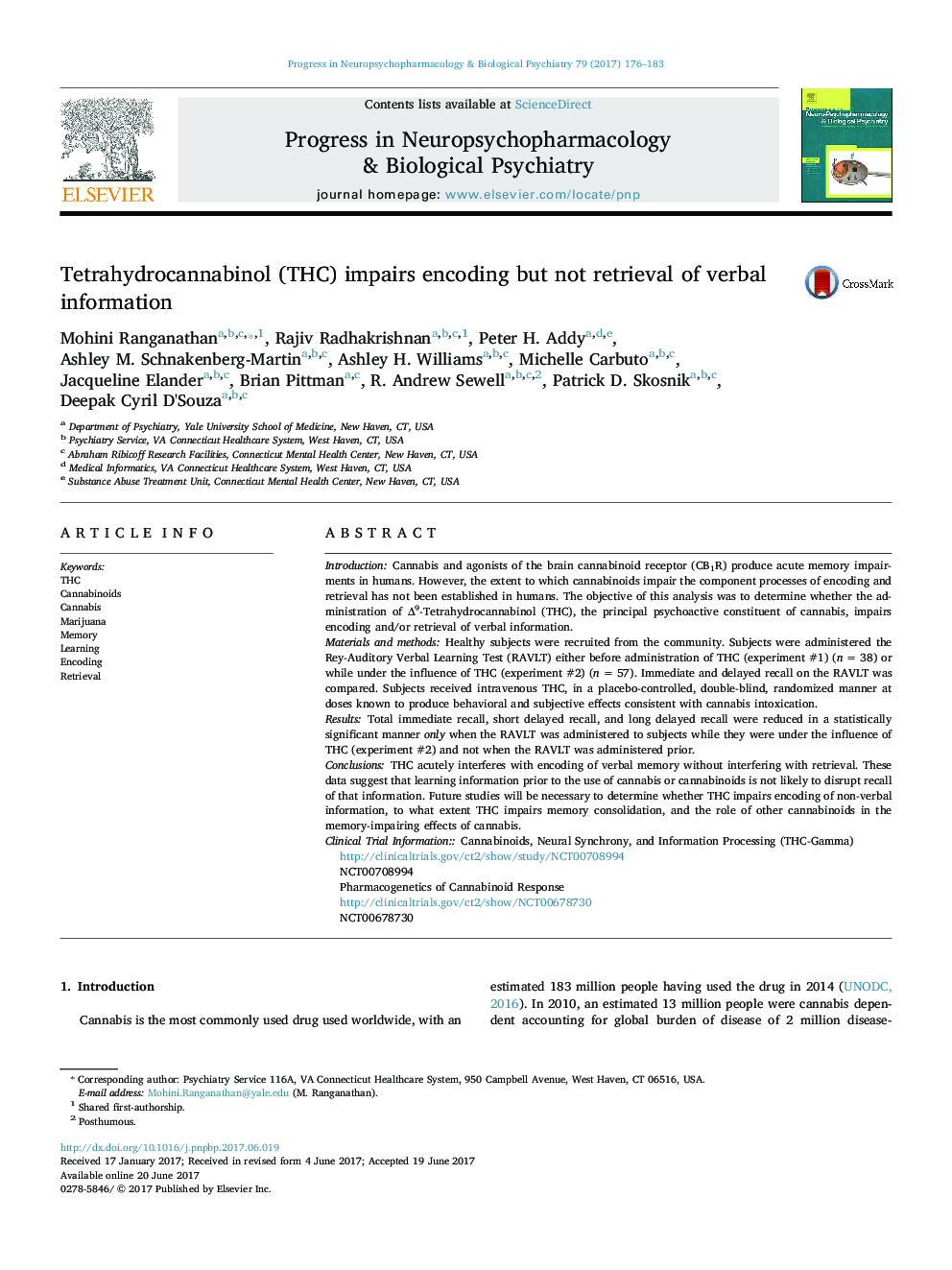| Article ID | Journal | Published Year | Pages | File Type |
|---|---|---|---|---|
| 5557918 | Progress in Neuro-Psychopharmacology and Biological Psychiatry | 2017 | 8 Pages |
â¢The study examined the effects of intravenous delta-9 tetrahydrocannabinol (THC) on encoding and retrieval of verbal memory.â¢The study utilized a randomized, double-blind, placebo-controlled design.â¢When encoding of verbal information occurred before the administration of THC, recall was not impaired.â¢When encoding occurred under the influence of THC, recall was impaired.â¢Therefore, THC acutely interferes with encoding of verbal memory without interfering with retrieval.
IntroductionCannabis and agonists of the brain cannabinoid receptor (CB1R) produce acute memory impairments in humans. However, the extent to which cannabinoids impair the component processes of encoding and retrieval has not been established in humans. The objective of this analysis was to determine whether the administration of Î9-Tetrahydrocannabinol (THC), the principal psychoactive constituent of cannabis, impairs encoding and/or retrieval of verbal information.Materials and methodsHealthy subjects were recruited from the community. Subjects were administered the Rey-Auditory Verbal Learning Test (RAVLT) either before administration of THC (experiment #1) (n = 38) or while under the influence of THC (experiment #2) (n = 57). Immediate and delayed recall on the RAVLT was compared. Subjects received intravenous THC, in a placebo-controlled, double-blind, randomized manner at doses known to produce behavioral and subjective effects consistent with cannabis intoxication.ResultsTotal immediate recall, short delayed recall, and long delayed recall were reduced in a statistically significant manner only when the RAVLT was administered to subjects while they were under the influence of THC (experiment #2) and not when the RAVLT was administered prior.ConclusionsTHC acutely interferes with encoding of verbal memory without interfering with retrieval. These data suggest that learning information prior to the use of cannabis or cannabinoids is not likely to disrupt recall of that information. Future studies will be necessary to determine whether THC impairs encoding of non-verbal information, to what extent THC impairs memory consolidation, and the role of other cannabinoids in the memory-impairing effects of cannabis.Clinical Trial Information:Cannabinoids, Neural Synchrony, and Information Processing (THC-Gamma)http://clinicaltrials.gov/ct2/show/study/NCT00708994NCT00708994Pharmacogenetics of Cannabinoid Responsehttp://clinicaltrials.gov/ct2/show/NCT00678730NCT00678730
